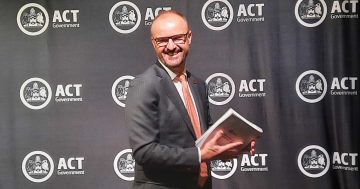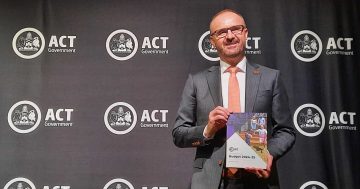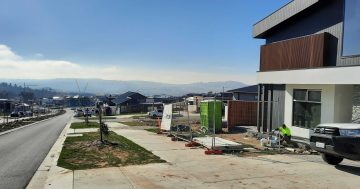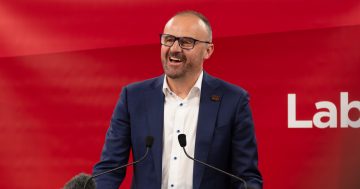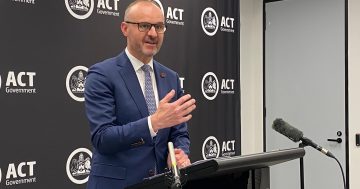
Money is getting tighter but Canberrans’ rates bills keep increasing.
When will the ACT Government admit it has a rates problem?
Half way through its 20-year tax reform program and facing an election next year, the Government is facing increasing disquiet about both residential and commercial rate increases, a fact that the Canberra Liberals are attempting to exploit for all its worth.
It’s looking more and more like Alistair Coe wants to frame the October 2020 poll as a referendum on rates, as he rolls out disgruntled business owners and MLAs park their cars emblazoned with anti-rates increase slogans on main roads around Canberra at peak hour.
He has nailed his colours to the mast, pledging a rates freeze.
Labor has seen it all before, surviving rates scare campaigns and convincing the electorate that it was on the right track by moving away from transactional taxes like stamp duty to a land-based system providing more sustainable revenue for a growing city that expects, as Chief Minister Andrew Barr rightly says, first-world services.
But for all the practitioners of the dismal science backing the reforms, the combination of a Government in power for 17 years, flat wages and an economy coming off the boil may cause voters to reappraise Mr Barr’s approach.
As Mr Coe said recently, “They said people would hardly notice it, well people are noticing it.”

Alistair Coe talks to Phillip businesses about their rates bills. File photo.
According to the Budget papers, estimated residential rates revenue for 2018-19 will be $359.1 million, rising to $388.4 million in 2019-20, with commercial rates at $199.1 million, increasing to $211.1 million.
The combined rates total for 2018-19 will be $587.5 million, a 180 per cent increase on the $2011-12 figure of $209 million before reform began, some of which of course is due to Canberra’s growth.
Stamp duty continues to rise despite windbacks for commercial and residential properties, including the scrapping of duty this year for first home buyers.
When the reforms began the Liberals warned voters their rates would triple and while we’re not there yet, a couple of elections and inquiries later, ratepayers are feeling the pinch.
Mr Barr’s reassurance at Budget time that the heavy lifting was over may not assuage voters facing a 7 per cent increase if they own a house or on average 11 per cent if they are unit owners. Business owners copped a 6 per cent rise, and some are saying enough is enough. One has seen a 76 per cent increase in the past three years.
Last week Minister Mick Gentleman was asked a Dorothy Dixer about police services but spent most of the time contrasting the Government’s responsible economic management with the Liberals’ inevitable need to cut the services Canberrans deserve.
The Government appears to be making the political calculation that the electorate will understand the need to put the Territory on a firm financial footing, especially if the alternative may mean a slash and burn Liberal government.
It may well say the Liberals do not have answers just slogans but it needs to beware of ratepayer fatigue, particularly if the national economic headwinds start to buffet the ACT.
And the Liberals do not need at this point to elaborate on the problem, only identify it.
The question is will Mr Barr next Budget have an election year plan B in his pocket to give ratepayers a breather or will he gamble on a lefty electorate sticking with him and ignoring the Liberal overtures that basically, it’s time.
The Government will need to do better than a scare campaign on cuts, and the Opposition will need to explain eventually how it’s going to pay for everything.












